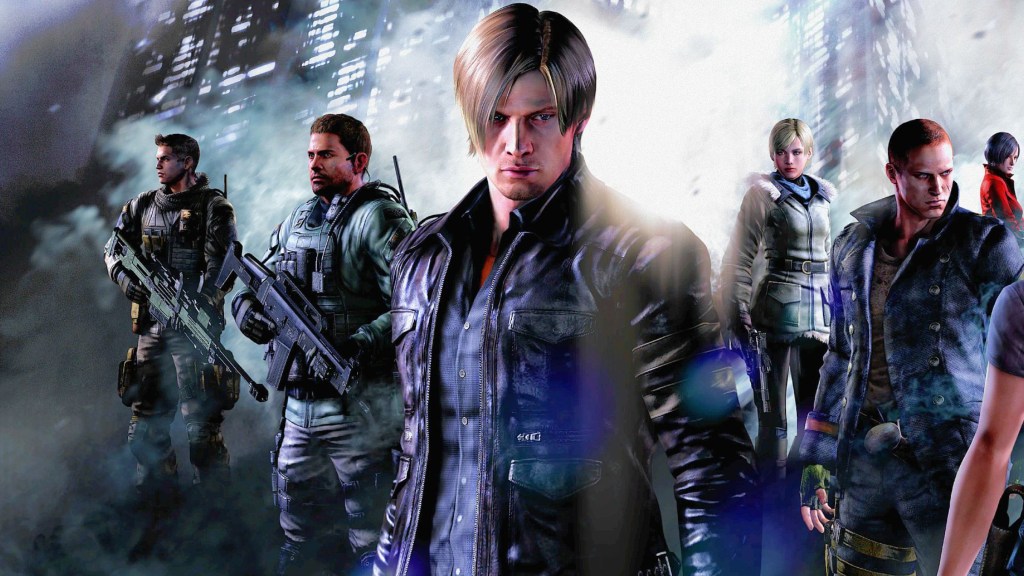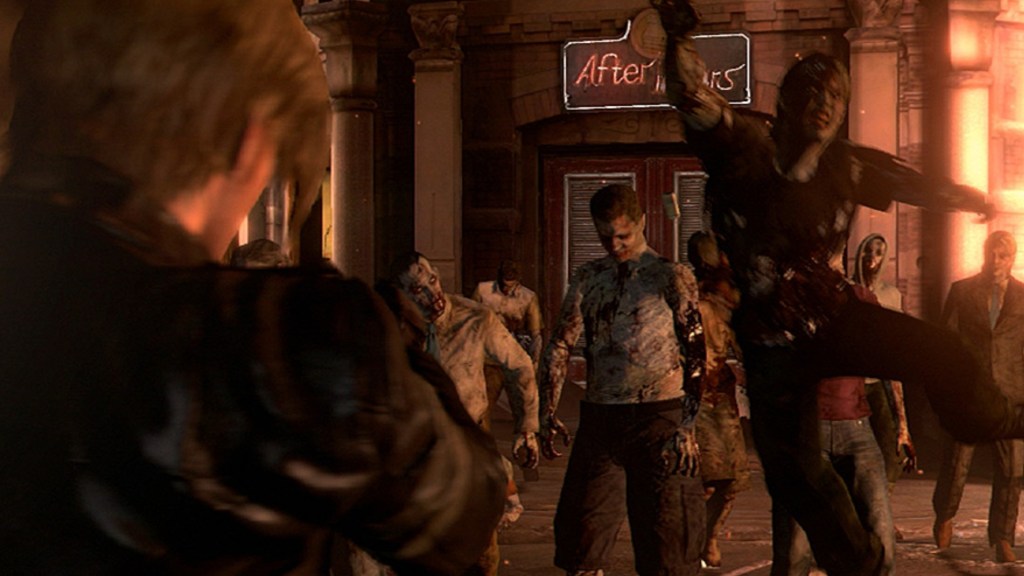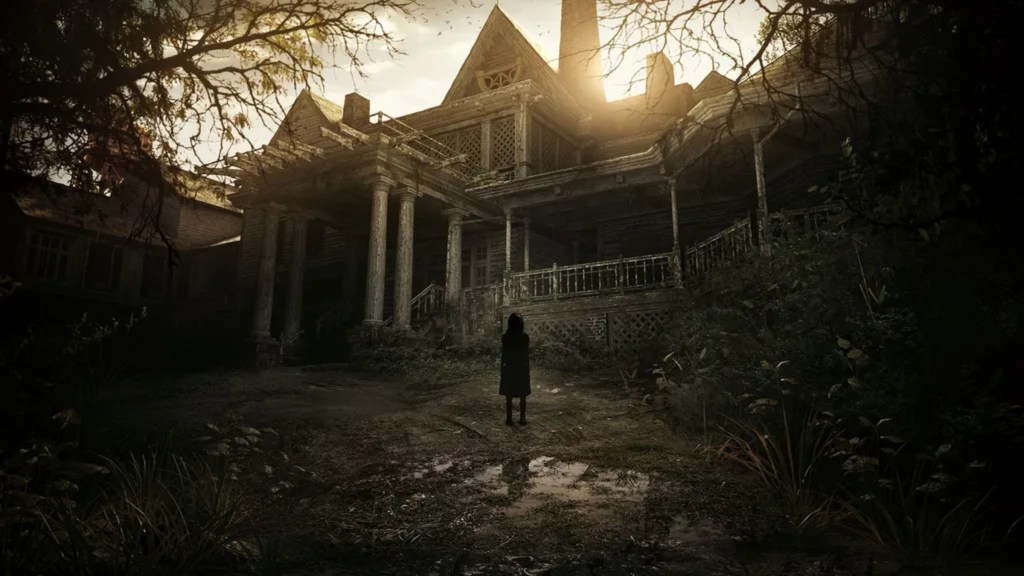While the Resident Evil series has had plenty of ups and downs, one of the most painful memories for fans remains Resident Evil 6. The eighth entry in the mainline series, Resident Evil 6 was the (at the time, at least) culmination of the overarching narrative that pitted the survivors of the S.T.A.R.S. unit and the remnants of the Umbrella Corporation after a new virus began to spread.
Videos by ComicBook.com
While the series had been steadily embracing more of an action-heavy tone, Resident Evil 6 takes it further than ever before. Too far for many fans, however. Resident Evil 6 remains a low point for the series among the fanbase, with too far of a push into bombastic action and melodramatic storytelling to retain the effective tension of earlier releases. Even in a series that always embraced excess, Resident Evil 6 was a step too far, leading to a radical reinvention of the franchise in the subsequent entry.
Resident Evil 6 Is Too Much Of A Good Thing

Resident Evil didn’t just suddenly become an action series. Rather, it was the result of a trend in the franchise that began with one of their biggest successes that went off the rails by the time of 6. After succesfully relaunching the series on the GameCube, Capcom found great success with Resident Evil 4. Leaving behind the American setting and the horror/conspiracy thriller tone, the game reoriented the narrative towards a big action story about Leon Kennedy fighting an entirely corrupted village to save the President’s daughter. The critical and commercial success of that title spurred the series to commit to the tone shift in Resident Evil 5.
Although the game received criticism for its increasing focus on boss battles and gunfights over horror, Resident Evil 5 still won over many critics and became the best-selling entry in the franchise. Resident Evil 6 tried to double down on that development by fully embracing the action gameplay across multiple character campaigns. The game focuses on Leon Kennedy, Chris Redfield, Ada Wong, and the newly introduced Jake Muller, each with their own super-powered enemies to overcome and shoot down.
The interconnected story went even more over-the-top than the rest of the series, which was already not known for its subtlety. The result is a game that suffers from a serious tonal issue when compared to the rest of the franchise. Even when Resident Evil started to embrace more of an action tone over the horror aesthetic of the initial titles, it still retained a tonal balance between the unsettling monsters and sinister conspiracies. That balance kept the tension going even as the action pushed the stakes to utterly ridiculous lengths, where characters could jump out of planes or punch out boulders. In Resident Evil 6, that balance is completely gone.
The Tonal Problem With Resident Evil 6

One of the frustrating elements of Resident Evil 6 is the way it tries to conclude the long-running Umbrella Corporation meta-plot, escalating the stakes to the point where they don’t really matter anymore. Notably, the earlier entries in the series had been fairly stand-alone stories connected tangentially through returning characters and an overarching threat.
This is partly how Resident Evil was able to thrive as a horror survival game. The risk of a single dog breaking through a window or a zombie stalking through the halls of a mansion was enough to get the player’s heart racing. The game was focused on the things happening right now, which could turn deadly at any time. The overarching conspiracies were background noise to the threats. However, things took a turn as the games embraced more combat encounters over tense exploration.
While Resident Evil 3 and Resident Evil 5 still featured monsters like the Nemesis and hordes of murderous infected killers that could suddenly ratchet up the tension, Resident Evil 6‘s overwhelming focus on big set pieces, while giving the players more combat skills, removed those beats. It became overwhelming, without the necessary breaks in action to emphasize the atmosphere or the creepiness of the story. This is where Resident Evil 4 thrived, finding that perfect balance of big shoot-outs with tight horror design. Resident Evil 6 is non-stop fights with little actual horror, something Resident Evil fans weren’t looking for.
Despite being defined as a horror series at its very core, Resident Evil 6 is an action game. It has a stamina bar, not as a means of increasing the tension, but to keep players from just instantly pulling off headshots with each pull of their gun. Whereas older entries in the game kept the stakes contained enough for the players to be sucked into the action when it actually pops off, Resident Evil 6 features the President of the United States being turned into a zombie and then getting shot in the head as an early plot turn. Resident Evil 6 takes things so far so quickly that it becomes impossible to regain that tension. Without this key ingredient, Resident Evil 6 doesn’t really feel like a true entry in the series, despite having all the characters and trappings of the universe.
Why Resident Evil 7 Had To Be Such A Departure From 6

It’s worth noting that Resident Evil 6 still sold well despite the fan response, getting by more on the brand recognition than the tepid reception from critics. The mixed reception from reviewers was much more positive than the acidic response the game had in the fanbase, however. Resident Evil 6 more or less resolved the Umbrella Academy narrative, leaving the door open for future storylines with the returning heroes. No one wanted them, though, especially after Resident Evil 6 had transformed the series into something different.
The reception to the title didn’t inspire confidence. In response, the developers behind the game shifted gears and repurposed the title to recapture as much horror as possible, revisiting the roots of the series with a full shift in tone, character, and story. The result was Resident Evil 7: Biohazard, a first-person game that put more emphasis on survival horror (albeit without losing the visceral thrill of an intense boss fight). Quickly called one of the best entries in the entire series, Resident Evil 7 was seen as a welcome return to form for a franchise that had lost sight of its roots with its shift into action.
If there’s any lesson from the controversial release and poor reception of Resident Evil 6 thirteen years ago, it’s that experimentation is key to success — to a point. Resident Evil 4 pushes the boundaries of how far action could go in the series without breaking the tension, and was rewarded for it. Resident Evil 7 went the opposite direction and found similar success, putting the horror front and center while still finding room for moments of action to break up the dread. Resident Evil 6 is the prime example of what happens when a game overcommits to what worked in the past instead of finding the balance that works for itself.








